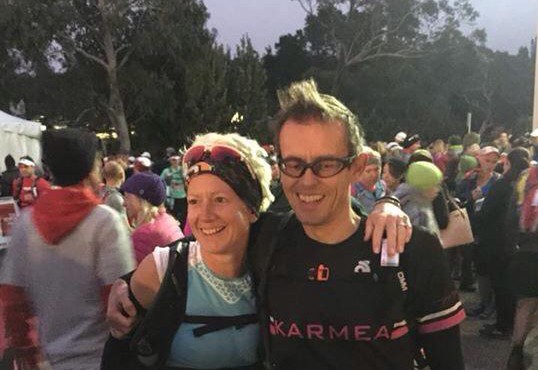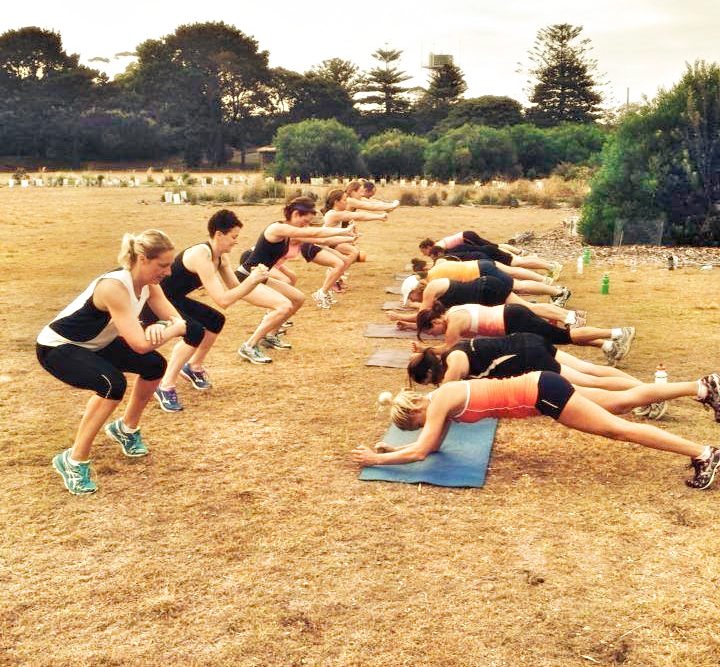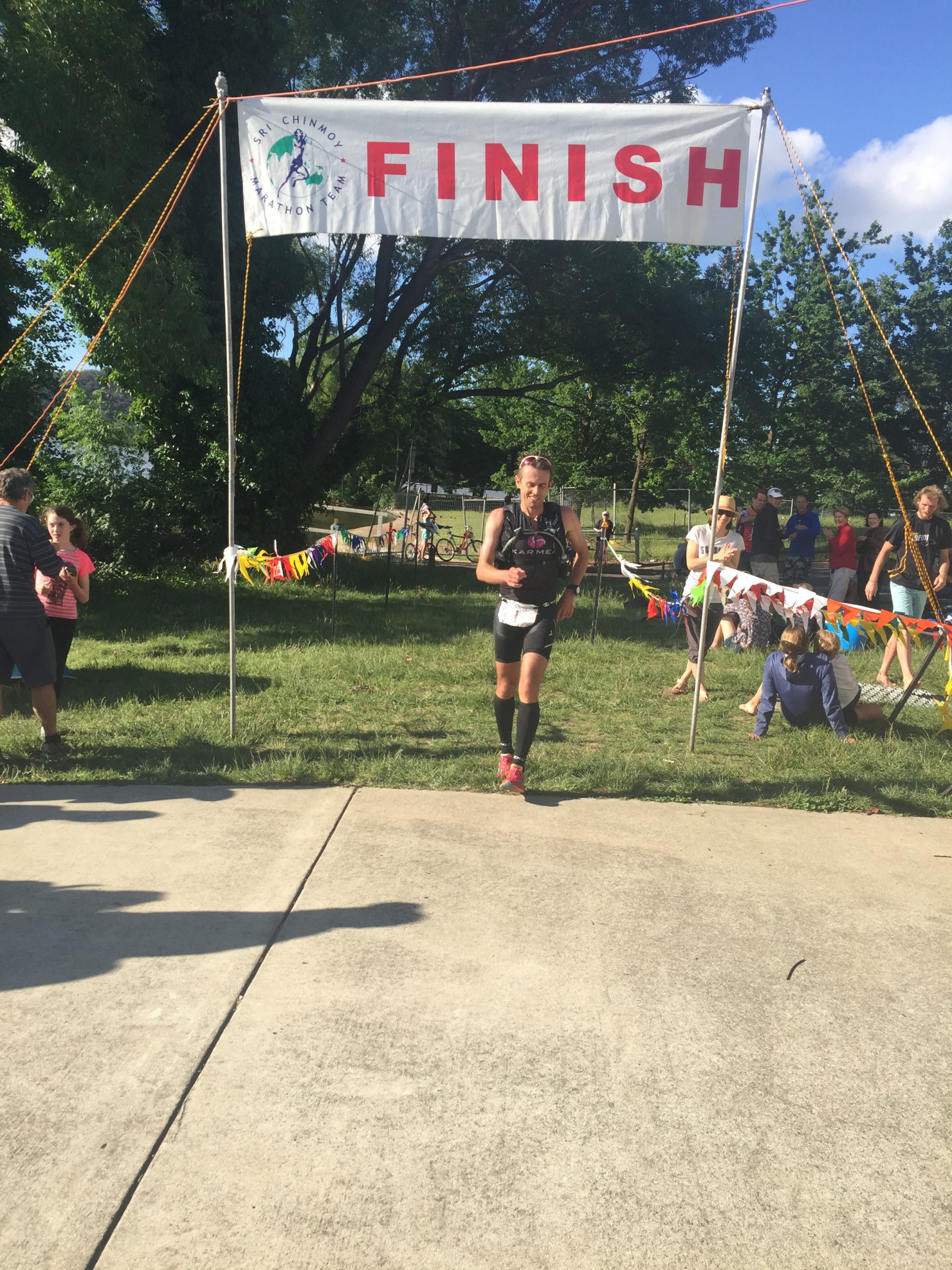
A decent training session is a wonderful thing. Sweat flows, your heart rate soars, and the endorphins start to kick in! But all that hard work won’t do you any good if you’re not balancing it out with the right amount of quality down time.
For many athletes, training for a race becomes a battle of physical strain, a fight to get to the start line in one piece. The increase in training load can lead to over-training, fatigue, illness and injury. All the hard work can go to waste as your race date looms, and you seem to pay increasingly regular visits to your physio for strapping, realigning and maintenance.
Whatever your sporting dream are for the future, you need to always remember to keep the balance right along the way. Our bodies really do thank us for looking after them properly. With the appropriate amount of exercise, good clean nutrition, and ample rest and recovery, you are capable of achieving anything you put your mind to.
As we head into a colder time of year it’s only natural for you to feel tired, especially if you are coming off the back of a big block of training or racing. The changes in the season mark a change in our habits. Having an ‘off’ season is a natural cycle of any athlete’s training.
So what is the key to ‘getting the balance right’? As well as ‘working out’ during your training sessions, it’s vital to put the right amount of emphasis on ‘working in’ for your body and mind. Here are our top tips for balancing the scales and setting yourself up for success, whatever your goals:
1 – Rest and Recover
Ensure that you build in adequate rest and recovery into your weekly schedule. Your body gets stronger while you rest, NOT while you are pounding the pavements, lifting weights, or climbing hills on your bike. All the training you do adds additional stress to your muscles, digestive system, hormonal system, brain, and other important bodily functions.
You need to ensure you are getting 7-8 hours of good sleep per night, a rest day each week, and adding in weeks of lighter training or rest weeks where the focus is anything but training.
The rest is as much mental as physical. During your sleep your body assimilates all that you’ve done during the day, including both your training and your daily life. On your rest weeks, your body builds strength, heals, and adapts to training load ready to step it up for the next block of training.
(Note: being off training sick does NOT count as a ‘rest week’!)
2 – Nourish and Hydrate
If you are increasing your physical activity you need to increase your intake of fuel, that’s obvious. But so many of us make the mistake of reaching for processed carbs in the form of pasta and breads. If you want 100% performance from your body during training then you need to be feeding it with good wholesome fuel that it can easily digest and send to where it’s needed for recovery and to prepare you for your next days training. Put crap in and you will get crap out!
When training for endurance you need to ensure you eat adequate amounts of carbohydrates to keep your glycogen stores replenished ready to fuel your physical activity, protein to ensure your are getting right amount of amino acids to build new tissue and repair the bodies cells, and good fats to transport nutrients around the body. Fat is also an important source of energy for exercise and is forms part of every cell membrane, brain tissues, bone marrow and nerve sheath.
Avoid high sugar content foods such as processed sauces and packaged foods, chemicals and additives, hydrogenated and trans fats, limit alcohol, cut out sugary sports/recovery drinks (learn to make your own here). Read the labels and educate yourself on what you are putting in your body.
Alongside your food comes hydration. Just because it’s colder doesn’t mean you don’t need to hydrate. A loss of just 2% of your body weight in moisture converts to a drop of 10-20% in aerobic capability. 4% loss will see you experiencing nausea, vomiting and diarrhoea. Always ensure you are adequately hydrated. Here’s a simple sum to work out your daily water intake: bodyweight in KGs x 0.033 (i.e 70kgs x 0.033 = 2.31 ltrs) You should add an extra litre of water for each hour you train. The best way to tell if you are hydrated… look at the colour of your pee! The darker the less hydrated you are, if it’s clear then you are over hydrating.
3. Working In
Quiet time is so overlooked when we train. Spend time doing other activities that aren’t related to the sport you are training for. Take a yoga class. Learn to meditate. Walk in the outdoors. Surf. Read a book that helps to motivate you, or mentally prepare for your event.
Journal your training not just on numbers, but from an emotional and energetic perspective. This can also include your food and hydration so it becomes a record of how your body is changing and responding during your journey rather than being based on performance indicators like times and distance.
Find some activities that you can enjoy outside of training to balance your life. Remember your family in this also, their time usually gets sacrificed during times of high volume training. The support of your family is so important, they want you to succeed, so show your appreciation by planning in time with them.
4. Strengthen Your Core
Your core is an integral part of your body. Our power originates at our core, it is also used to stabilise our spine, protect our internal organs, and help with our respiration, digestion and elimination. Always build a strong core practice into any training program either with specific resistance and strength training or with activities such as pilates.
Above all remember that you must build core strength with the movement patterns you will use for your sport, so hours of plank and crunches will not build you the core you need for running or swimming. You can use isolated movements to awaken the core, but always follow up with integrated movement patterns that utilise the core in the way that you will be using it within your chosen sport.
5. Learn to Listen
Learn to listen to your body. If it is unhappy it will send you subtle hints; a sniffly nose, waking feeling unrested, a prolonged muscle niggle, disturbed sleep, upset digestion, craving certain foods. These are just some of the signs that things are out of balance and you body needs your attention. Your body has no other way to communicate with you, so learn to link these signals to your bodies need for something, it isn’t just a random occurrence.
Ignore these little signs at your peril, next comes the big hitter that floors you for a week or longer. You can’t train, you can’t sleep, you feel down, and worse case scenario you can’t take part in the race you used to motivate you to train the first place.
6. Choose the right coach
Seems like an obvious one right? But you’d be surprised how many people go with an inappropriate coach for their level of ability. Do your research, talk to other athletes, get recommendations from friends who have used coaches and achieved their aims.
Make sure your coach understands your objectives for your race, your current ability, and most importantly your commitments outside of training. Overload comes not only from your training sessions, but also from the everyday stresses of life/work/family etc. So it’s really important that all of this is factored in.
Has your coach stood on the start line of your event, do they understand the importance of the type of training required? Ensure that your coach’s style of training fits your level of commitment and time requirements, or you will likely end up burnt out and broken.
When we look after and listen to our bodies they allow us to be capable of the most amazing things. You should never stop dreaming of your goals in life but you have only one body that’s going to carry you towards your destination. Treat it with respect, listen to its messages and respond to its needs. I promise you that the Thanks you get in return will take you to where you want to go and beyond.
Sarah Anne Evans is the head coach for Karmea. She is an established triathlon and endurance coach with experience helping athletes at all levels achieve their goals, and a background of 15 years of race experience over various distances and disciplines.
Sarah Anne founded Karmea based on principles that create a more complete and rounded athlete, capable of achieving anything they set their minds to. For more info on the coaching that Karmea offers, visit here



